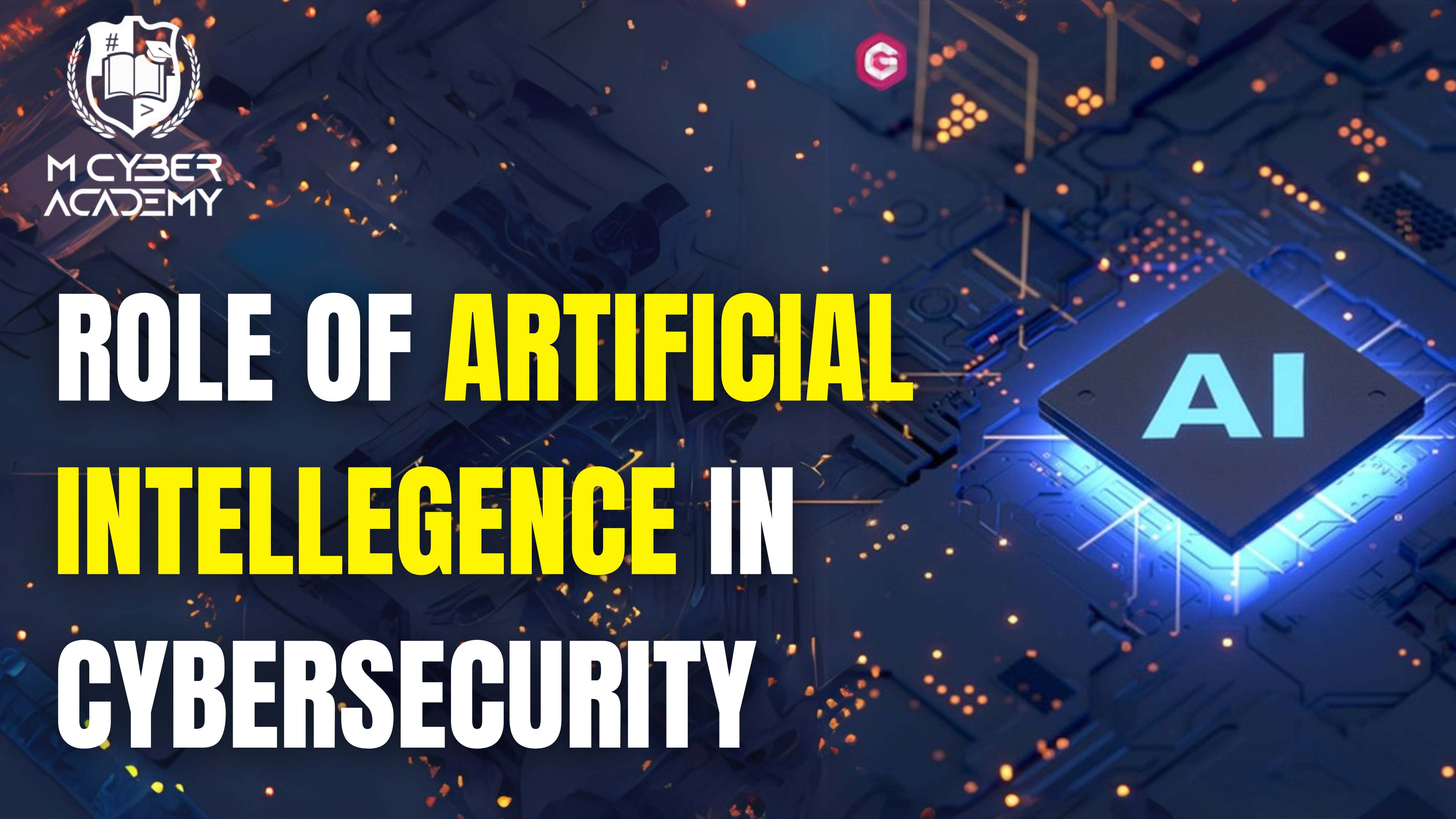
The Role of AI in Modern Cybersecurity Training
"The technology of today's world is accelerating dramatically, as well as cyber threats we are facing these days. Now, with using Artificial Intelligence (AI) in Cybersecurity training, AI became one of the vital constituents for professionals to identify dangers, protect systems, and respond to attacks speedily and efficiently. However, what exactly does AI do in cybersecurity courses? How will it help you build a successful career in cybersecurity? Let's go ahead and explore the role AI plays in modern cybersecurity classes."
Why AI is Transforming Cybersecurity Training

The meaning of AI is Artificial Intelligence. That refers to the machine's ability to learn to think like a human being. Cybersecurity is an area that will apply AI to be able to identify threats and to help in preventing cyber attacks, while helping experts to investigate crimes. For instance, an AI can identify patterns from vast data; this helps detect hacking attempts, malware, or even phishing emails. Applying AI makes cybersecurity courses more interactive, practical, and real-world focused.
How AI Aids in Cybersecurity Training?
AI is changing the way cyber academy programs train students. From being told about cyber threats to actually practicing how to respond with AI tools to real-life scenarios, students can do just that. Here are some of the most important ways in which AI is being applied to cybersecurity training:
1. Cyber Attack Simulations
The AI tools can create simulated cyber attacks so that the students can practice their responses. Whether it is a cyber crime investigation course or learning ethical hacking, the simulations make the learning process more practical and hands-on
2. Adaptive Learning
AI-based applications can change your learning according to your speed of progress. For instance, if you are weak on networking or digital forensics, the AI will guide you to specific practice exercises or lessons to master those areas.
3. Real-Time Threat Detection
AI enables professionals to detect threats in real time. Using AI, the student is able to recognize more quickly cyber threats that can include malware or hackers attempting to infiltrate a system.
AI in Specialized Cybersecurity Domains
Digital Forensics
Once there is a cyber attack, this is where digital forensics will come into the field, helping the experts in terms of investigations and knowing how the attack occurred. The huge role of AI also contributes to this process that is very fast and also precise. In the course of computer forensics, students are learning how to trace the hacker and track down digital evidence that shows how the crime has been done. AI tools will crunch data in massive quantities and search for undetermined clues that aid problem resolution quickly. Should you attend a cybercrime investigations class, you'll conduct a piece of AI-analysis, learning about hacking; once you finish with those tools, you should then apply them in real forensic conditions.
Ethical Hacking
Ethical hacking involves checking on computer systems for their vulnerabilities before cybercriminals take the chance to exploit them. In an ethical hacking course, AI can be simulated by the student to try and break into the network or with some penetration testing tools advanced in penetrating the system. This use of AI in ethical hacking courses makes the learning interactive in simulating real life while you practice protecting the system and finding its vulnerability. If you’re interested in a White hat hacking course, you’ll learn how to use AI-powered tools that mimic real-world hacking tools. These tools allow students to experience what it’s like to think like a hacker while also learning how to protect systems.
Career in Cybersecurity in 2025
In 2025 and after, the demand will further increase for a skillful cybersecurity professional. Learning within AI cybersecurity courses prepares students so well for that coming demand. They would help you to work much faster, efficiently solving complex problems and then spotting cyber threats much quickly with AI tools.
Many students in India are already preparing in 2025 for a cyber security career by taking some courses like a certified ethical hacking certification or ethical hacking courses in India. That uses AI to simulate real time scenarios, provides the learning and experience necessary to go forward in the cybersecurity field
AI and Networking Courses
This is a key area in cybersecurity that AI improves upon in teaching methods. It can create a simulation of network challenges and issues, providing the trainee students to work out vulnerabilities so as to understand how vulnerabilities could be worked out against a given cybersecurity threat in real time by using an AI system to learn, through an AI network system.
AI also trains students on how the components of a network can communicate with each other. While demonstrating real life network scenarios, AI may make students more interested in classes for better understanding of protecting a network from attacks.
AI in Cybersecurity Courses after 12th
If you want to pursue a cybersecurity courses after 12th, AI-powered training can be a great chance to gain an edge over others in the job market. Courses like certification in ethical hacking or certified ethical hacker are becoming very popular in India. It teaches students on how to protect computer systems from hackers, and it makes learning easier and funnier with AI.
AI makes it possible for learners to learn ethical hacking. With AI, a learner can test systems in both attacking and defense while being secure. For instance, a student joins a White hat hacking course where AI simulates the attacks so that the learner learns how to defend attacks. The practical experience is a very vital way of equipping students to deal with the real cyber challenges.
The role of artificial intelligence in penetration testing:
Penetration testing is otherwise called pen testing; it's the process used to identify vulnerabilities in a computer system or network. During advanced penetration testing courses, AI helps to automate part of the testing process so that it can make the whole process faster and more efficient. Using the AI tools available, students can scan systems for vulnerabilities and then receive feedback on how the issues may be fixed. Therefore, repetitive tasks are automated by AI; thus, students can proceed to advanced penetration tests. Students will use AI-based tools that will illustrate how not to hack and keep your sensitive information from being stolen.
AI in Python and Linux Classes
Learning Python programming languages and operating systems like Linux course is a must for cybersecurity professionals. The application of AI in the learning process is making these topics more accessible because it provides students with instant feedback and suggestions while working on coding exercises. For more information kindly visit our website…
Conclusion
AI is revolutionizing cybersecurity training, making it more interactive, efficient, and real-world-focused. Whether you're interested in ethical hacking, digital forensics, or networking, AI-powered courses are your gateway to a thriving career in cybersecurity.
Explore cybersecurity training today and secure your future in this exciting field!